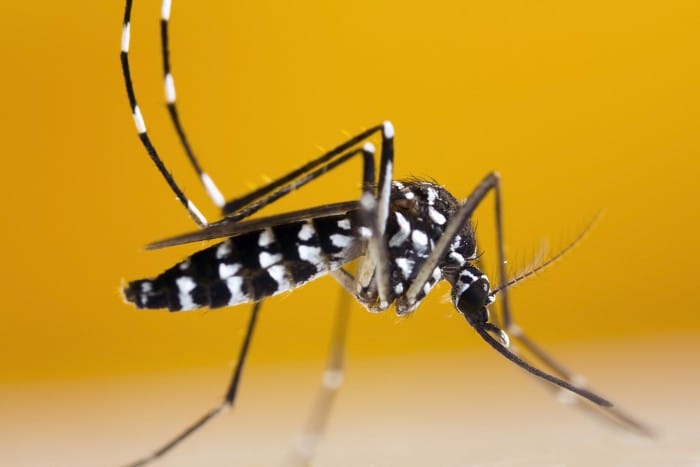Natural Ways to Keep Mosquitoes at Bay

Introduction to Mosquito Menace
Mosquitoes are a nuisance and a health hazard, spreading diseases like malaria, dengue, and Zika virus. These tiny creatures can turn a peaceful evening into a frustrating experience, leaving you with itchy bites and a heightened risk of contracting serious illnesses.
The Dangers of Chemical-Based Solutions
While chemical-based repellents and pesticides may provide temporary relief, they have harmful side effects that can compromise your health and the environment. Inhaling toxic fumes, skin irritation, and contributing to the development of pesticide-resistant mosquitoes are just a few of the risks associated with these solutions.
Natural Mosquito Repellents
When it comes to keeping mosquitoes at bay, many of us reach for chemical-laden sprays and lotions. However, there are several natural alternatives that can be just as effective without the harsh side effects.
Essential Oils: A Natural Defense
Certain essential oils have been proven to repel mosquitoes, including:
- Citronella oil, derived from a type of grass, is a well-known natural insect repellent.
- Lemongrass oil, with its strong citrus scent, can help keep mosquitoes away.
- Lavender oil, known for its calming effects, also has natural mosquito-repelling properties.
Herbal Remedies: Nature's Solution
Herbs like:
- Catnip, often associated with feline friends, has natural mosquito-repelling properties.
- Garlic, a common kitchen staple, can be used to repel mosquitoes.
- Basil, a popular herb used in cooking, also has natural mosquito-repelling properties.
Natural Substances: Additional Options
Other natural substances that can be used as mosquito repellents include:
- Witch hazel, a natural astringent, can help repel mosquitoes.
- Apple cider vinegar, a natural antimicrobial agent, can also be used as a repellent.
- Coconut oil, a natural moisturizer, has been shown to have mosquito-repelling properties.
Mosquito-Repelling Plants
Mosquitoes can be a nuisance, but there are natural ways to keep them at bay. One effective method is to utilize mosquito-repelling plants. These plants contain certain oils and compounds that repel mosquitoes, providing a natural barrier against these pesky insects.
Outdoor Plants
Planting certain species in your yard can help keep mosquitoes away. Some effective options include:
- Citronella: Known for its strong citrus scent, citronella is a natural insect repellent.
- Lemongrass: This tropical plant contains citronella oil, which repels mosquitoes.
- Lavender: Lavender's calming scent for humans is also a natural mosquito repellent.
Herbs and Indoor Plants
In addition to outdoor plants, certain herbs and indoor plants also possess mosquito-repelling properties. These include:
- Basil: This popular cooking herb has natural oils that repel mosquitoes.
- Mint: Mint's strong scent can help keep mosquitoes away.
- Rosemary: This herb's fragrance is known to repel mosquitoes.
Other Natural Repellents
Certain plants have been shown to have mosquito-repelling properties, including:
- Catnip: Believe it or not, catnip is known to repel mosquitoes.
- Garlic: Garlic's strong scent can help keep mosquitoes at bay.
By incorporating these plants into your yard and home, you can create a natural barrier against mosquitoes and enjoy the outdoors without those pesky insects.
DIY Mosquito Traps and Remedies
Looking for effective and eco-friendly ways to keep mosquitoes at bay? Look no further! Here are some DIY mosquito traps and remedies that are easy to make and highly effective.
Homemade Mosquito Trap
Create a homemade mosquito trap using a plastic bottle, sugar, and yeast. This trap works by attracting mosquitoes with a fermented mixture and trapping them inside. Here's how to make it:
- Cut the top off a plastic bottle and flip it upside down.
- Mix 1 tablespoon of sugar, 1 tablespoon of yeast, and 1 cup of warm water.
- Pour the mixture into the bottle and place the top back on.
- Wait for 24 hours to allow the mixture to ferment.
- Place the trap near areas where mosquitoes are present.
Natural Mosquito Repellent
Mix baking soda and water to create a natural mosquito repellent. This paste can be applied to skin or clothing to keep mosquitoes away. Here's how to make it:
- Mix 1 tablespoon of baking soda with 1 tablespoon of water.
- Apply the paste to skin or clothing.
Natural Mosquito Spray
Use essential oils and water to create a natural mosquito spray. This spray can be used on skin, clothing, or in areas where mosquitoes are present. Here's how to make it:
- Mix 10 drops of essential oil (such as citronella, lemongrass, or peppermint) with 2 cups of water.
- Pour the mixture into a spray bottle.
- Shake well and spray as needed.
Preventing Mosquito Breeding
Mosquitoes need standing water to breed, so eliminating these areas around your home is crucial to prevent infestations. Here are some effective ways to prevent mosquito breeding:
Eliminate Standing Water
Check your home and yard for any areas where water may collect, such as flowerpots, bird baths, and clogged drains. Regularly empty and dry these containers to prevent mosquito larvae from growing.
Use Mosquito-Killing Fish
Certain fish, like guppies or goldfish, feed on mosquito larvae. Consider adding these fish to standing water, like ponds or fountains, to naturally control mosquito populations.
Keep Your Yard Clean
Keep your yard free of debris, leaves, and weeds, which can provide hiding spots for mosquitoes. Regularly trim bushes and shrubs to reduce areas where mosquitoes can rest and hide.
Conclusion
In conclusion, natural methods offer a safer and eco-friendly way to repel mosquitoes, reducing the risks associated with chemical-based repellents and pesticides. By embracing these natural approaches, individuals can contribute to a healthier environment and minimize their ecological footprint.
Embracing a Holistic Approach
Combining these natural methods for effective mosquito control can lead to a significant reduction in mosquito-borne diseases and create a healthier environment. By implementing these techniques, individuals can enjoy the outdoors without the nuisance of mosquitoes, while also promoting biodiversity and ecological balance.
A Healthier Environment for Future Generations
By choosing natural methods to repel mosquitoes, individuals can help safeguard the environment for future generations. This approach not only ensures a healthier living space but also preserves the natural world, allowing ecosystems to thrive and supporting the well-being of all living creatures.

















Comments ()